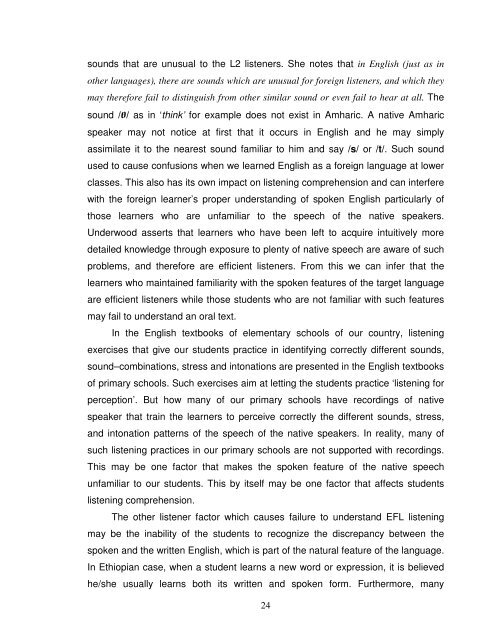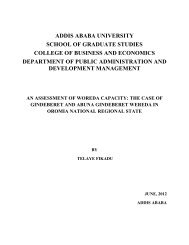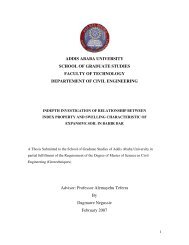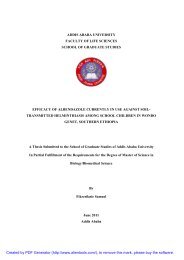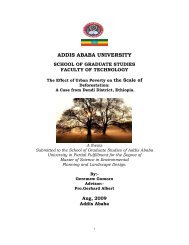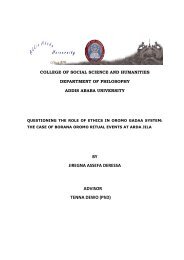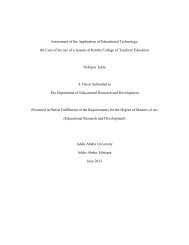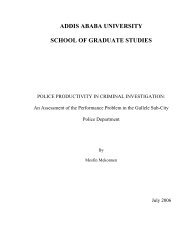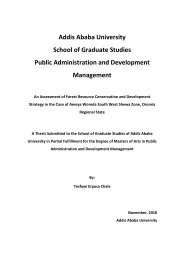FACTORS THAT CONTRIBUTE TO THE PROBLEMS EFL ...
FACTORS THAT CONTRIBUTE TO THE PROBLEMS EFL ...
FACTORS THAT CONTRIBUTE TO THE PROBLEMS EFL ...
You also want an ePaper? Increase the reach of your titles
YUMPU automatically turns print PDFs into web optimized ePapers that Google loves.
sounds that are unusual to the L2 listeners. She notes that in English (just as in<br />
other languages), there are sounds which are unusual for foreign listeners, and which they<br />
may therefore fail to distinguish from other similar sound or even fail to hear at all. The<br />
sound / / as in ‘think’ for example does not exist in Amharic. A native Amharic<br />
speaker may not notice at first that it occurs in English and he may simply<br />
assimilate it to the nearest sound familiar to him and say /s/ or /t/. Such sound<br />
used to cause confusions when we learned English as a foreign language at lower<br />
classes. This also has its own impact on listening comprehension and can interfere<br />
with the foreign learner’s proper understanding of spoken English particularly of<br />
those learners who are unfamiliar to the speech of the native speakers.<br />
Underwood asserts that learners who have been left to acquire intuitively more<br />
detailed knowledge through exposure to plenty of native speech are aware of such<br />
problems, and therefore are efficient listeners. From this we can infer that the<br />
learners who maintained familiarity with the spoken features of the target language<br />
are efficient listeners while those students who are not familiar with such features<br />
may fail to understand an oral text.<br />
In the English textbooks of elementary schools of our country, listening<br />
exercises that give our students practice in identifying correctly different sounds,<br />
sound–combinations, stress and intonations are presented in the English textbooks<br />
of primary schools. Such exercises aim at letting the students practice ‘listening for<br />
perception’. But how many of our primary schools have recordings of native<br />
speaker that train the learners to perceive correctly the different sounds, stress,<br />
and intonation patterns of the speech of the native speakers. In reality, many of<br />
such listening practices in our primary schools are not supported with recordings.<br />
This may be one factor that makes the spoken feature of the native speech<br />
unfamiliar to our students. This by itself may be one factor that affects students<br />
listening comprehension.<br />
The other listener factor which causes failure to understand <strong>EFL</strong> listening<br />
may be the inability of the students to recognize the discrepancy between the<br />
spoken and the written English, which is part of the natural feature of the language.<br />
In Ethiopian case, when a student learns a new word or expression, it is believed<br />
he/she usually learns both its written and spoken form. Furthermore, many<br />
24


